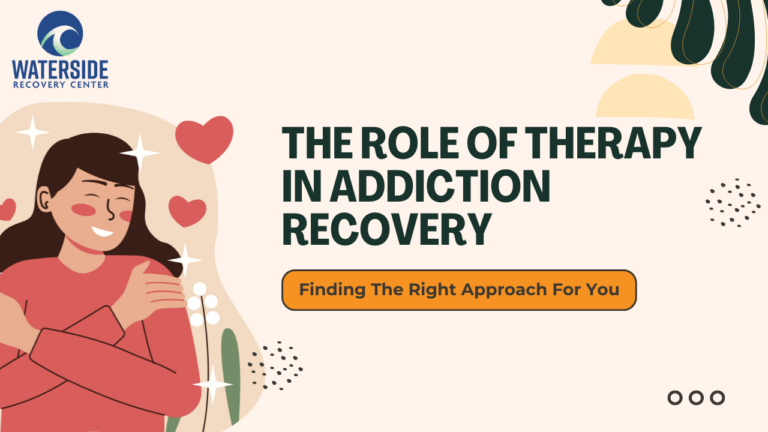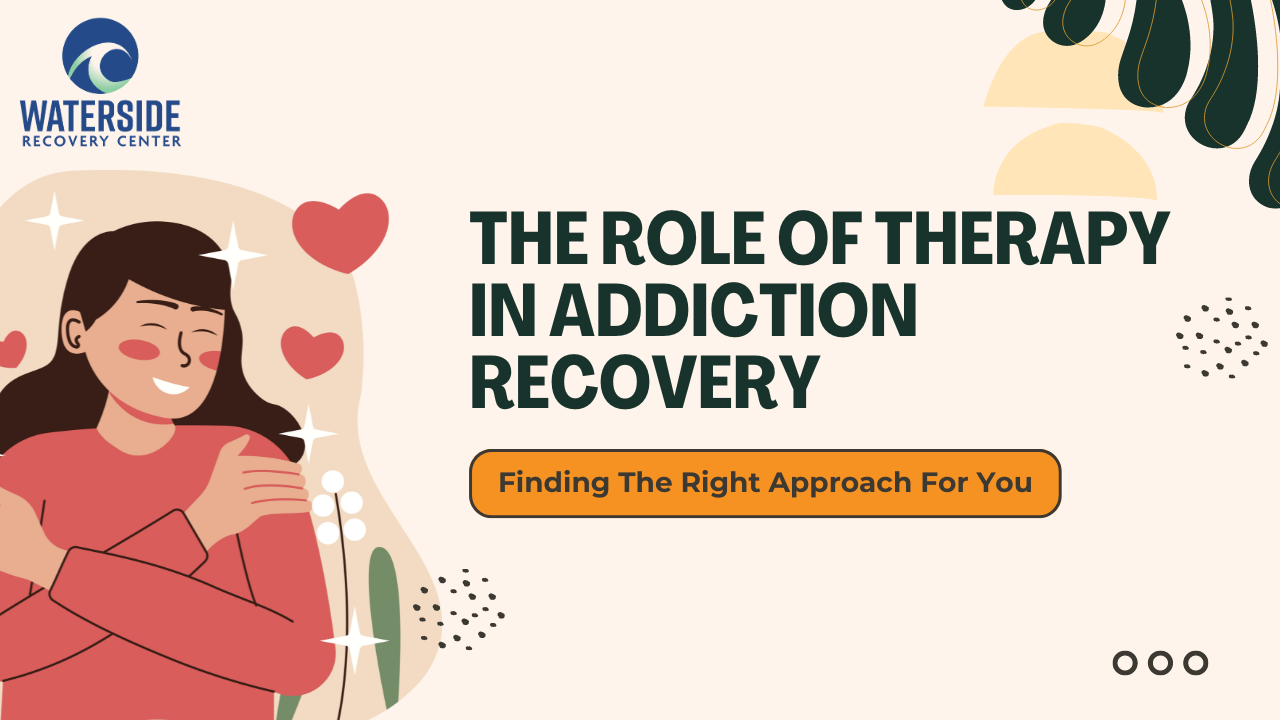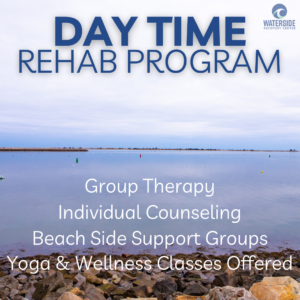
The Role of Therapy in Addiction Recovery: Finding the Right Approach for You
Addiction is a complex and debilitating disease that affects millions of people worldwide. It can lead to negative consequences in all aspects of life, including physical health, mental health, relationships, and finances. While there are many different approaches to addiction recovery, therapy has been shown to be an effective tool in helping individuals overcome their addiction.
Therapy can play a vital role in addiction recovery by providing individuals with the tools and support they need to address the underlying causes of their addiction. It can help individuals identify and work through the emotional and psychological issues that may have contributed to their addiction, such as trauma, stress, anxiety, or depression. Therapy can also help individuals develop coping strategies to manage cravings and triggers, improve communication and relationship skills, and build a strong support system.
However, it is important to note that not all therapy approaches are created equal, and what works for one person may not work for another. Finding the right approach to therapy is essential to achieving long-term recovery. This article will explore the role of therapy in addiction recovery and provide guidance on how to find the right approach for you.
Understanding Addiction
Defining Addiction
Addiction is a complex and chronic disease that affects the brain’s reward, motivation, and memory systems. It is characterized by compulsive drug-seeking and use despite harmful consequences. Addiction is often accompanied by physical dependence, tolerance, and withdrawal symptoms when the drug use is stopped.
The American Society of Addiction Medicine (ASAM) defines addiction as “a primary, chronic disease of brain reward, motivation, memory, and related circuitry. Dysfunction in these circuits leads to characteristic biological, psychological, social, and spiritual manifestations. This is reflected in an individual pathologically pursuing reward and/or relief by substance use and other behaviors.”
Causes and Risk Factors
There is no single cause of addiction, and it is often the result of a combination of genetic, environmental, and personal factors. Some of the common risk factors for addiction include:
- Genetics: Family history of addiction can increase the risk of developing addiction.
- Environment: Exposure to drugs or alcohol at an early age, peer pressure, and stress can contribute to addiction.
- Mental health: People with mental health disorders, such as depression and anxiety, are more likely to develop addiction.
- Trauma: Traumatic experiences, such as physical or sexual abuse, can increase the risk of addiction.
It is important to note that addiction is not a moral failing or lack of willpower. It is a disease that requires professional treatment and support. Therapy can play a crucial role in addiction recovery by helping individuals understand the underlying causes of their addiction and developing coping skills to manage triggers and cravings.
Therapy in Addiction Recovery
Addiction is a complex disease that requires a comprehensive approach to treatment. Therapy is an essential component of addiction recovery, as it helps individuals address the underlying causes of addiction and develop the skills necessary to maintain long-term sobriety.
Benefits of Therapy
Therapy provides many benefits to individuals in addiction recovery, including:
- Developing coping skills to manage triggers and cravings
- Improving communication and interpersonal relationships
- Addressing co-occurring mental health disorders
- Enhancing self-awareness and self-esteem
- Providing a supportive and non-judgmental environment for personal growth
Types of Therapeutic Approaches
There are several types of therapeutic approaches used in addiction recovery, including:
- Cognitive Behavioral Therapy (CBT): Focuses on identifying and changing negative thought patterns and behaviors.
- Dialectical Behavioral Therapy (DBT): Emphasizes mindfulness, emotional regulation, and interpersonal effectiveness.
- Motivational Interviewing (MI): A client-centered approach that helps individuals identify their own motivations for change.
- Family Therapy: Involves the individual’s family in the treatment process to address family dynamics and promote healing.
Individual vs. Group Therapy
Individual therapy provides one-on-one support and allows for personalized treatment planning. Group therapy provides a supportive and social environment where individuals can learn from others and develop interpersonal skills. Both individual and group therapy can be effective in addiction recovery, and the choice between the two depends on the individual’s needs and preferences.
Choosing the Right Therapeutic Approach
When it comes to addiction recovery, choosing the right therapeutic approach can be a crucial factor in achieving long-term success. There are many different types of therapy available, and what works for one person may not work for another. Therefore, it is important to assess each individual’s needs and preferences to find the most effective approach.
Assessment and Personalization
Before beginning any type of therapy, it is important to undergo an assessment to determine the best course of action. This assessment should take into account the individual’s personal history, substance use patterns, mental health status, and any other relevant factors. By taking a personalized approach, the therapist can tailor the treatment to the individual’s specific needs and goals.
Considerations for Effective Treatment
When choosing a therapeutic approach, there are several factors to consider to ensure its effectiveness. These include:
Evidence-based: The therapy should be based on scientific evidence and proven to be effective in treating addiction.
Individualized: As mentioned earlier, the therapy should be tailored to the individual’s specific needs and preferences.
Holistic: The therapy should address all aspects of the individual’s life, including physical, emotional, and spiritual well-being.
Supportive: The therapy should provide a supportive and non-judgmental environment to encourage open communication and trust.
Long-term: The therapy should be focused on achieving long-term recovery, rather than just short-term abstinence.
By considering these factors and working with a qualified therapist, individuals can find the right therapeutic approach to support their journey to recovery.
Integrating Therapy with Other Treatments
Addiction recovery is a complex process that often requires a combination of treatments. While therapy can be a highly effective tool for addressing addiction, it is often most successful when integrated with other treatments. Here are two common treatments that can be used in conjunction with therapy for addiction recovery:
Medication-Assisted Treatment
Medication-assisted treatment (MAT) is a type of treatment that involves the use of medication to help manage withdrawal symptoms and cravings. MAT is often used in combination with therapy to provide a comprehensive approach to addiction recovery.
There are a variety of medications that can be used in MAT, including methadone, buprenorphine, and naltrexone. These medications can help individuals manage withdrawal symptoms, reduce cravings, and prevent relapse.
It is important to note that MAT should always be used under the guidance of a medical professional. While MAT can be highly effective, it is not a standalone treatment for addiction.
Support Systems and Aftercare
Support systems and aftercare are crucial components of addiction recovery. These treatments can help individuals stay on track with their recovery and prevent relapse.
Support systems can include a variety of resources, such as support groups, peer counseling, and family therapy. These resources can provide individuals with the emotional support they need to stay committed to their recovery.
Aftercare is a type of treatment that is designed to help individuals maintain their sobriety after completing a formal addiction treatment program. Aftercare can include ongoing therapy, support groups, and other resources that can help individuals stay on track with their recovery.
When used in conjunction with therapy, support systems and aftercare can provide individuals with a comprehensive approach to addiction recovery. By addressing the physical, emotional, and social aspects of addiction, individuals can increase their chances of achieving long-term sobriety.
At Waterside Recovery Centers we pride ourselves on providing the top addiction treatment in Massachusetts. With a range of evidence-based, client-focused and individualized treatment offerings, we are able to provide the ideal support for those seeking recovery from substance addiction. Please feel free to reach out to our help line at anytime.
(866)671-8620





